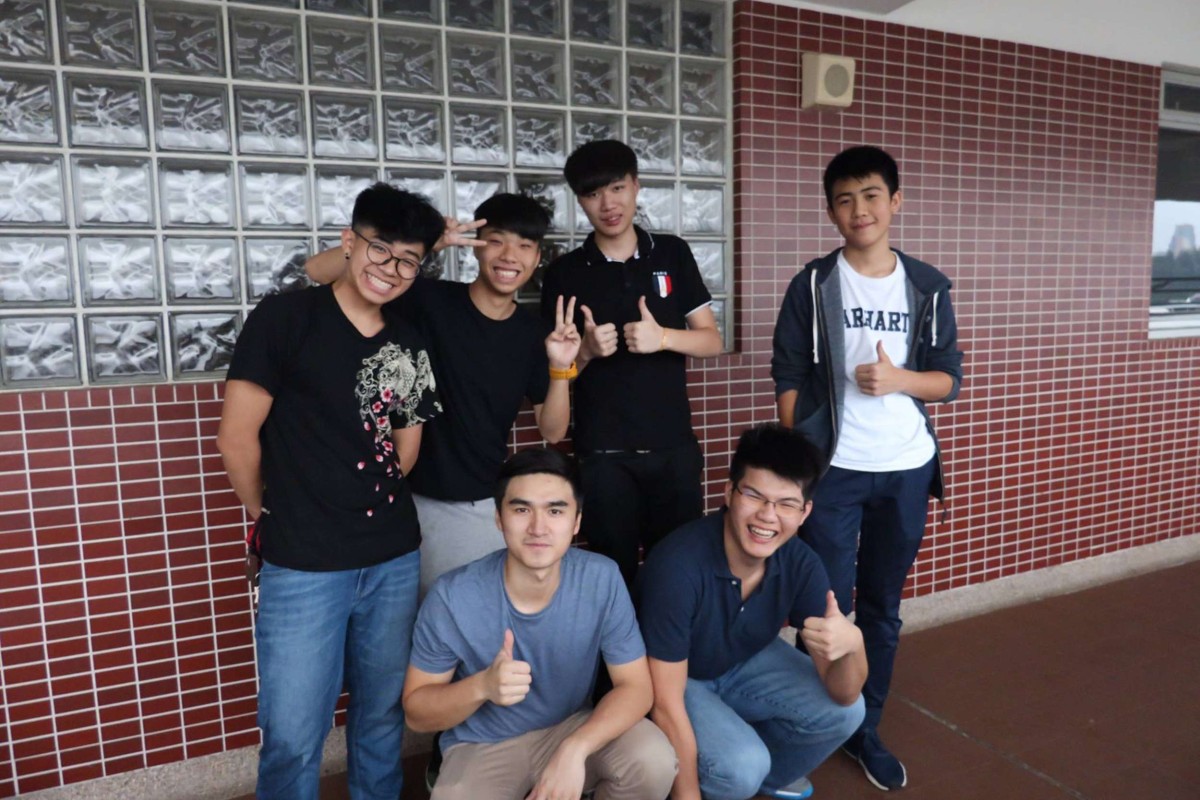
Your background shouldn’t hinder your right to become an entrepreneur – which is why the Abacus Startup Academy gives all budding entrepreneurs access to business resources no matter who you are

 Yew San and Dominic (bottom) started Abacus to provide resources for all entrepreneurs, like the DreamHouse Cafe crew.
Yew San and Dominic (bottom) started Abacus to provide resources for all entrepreneurs, like the DreamHouse Cafe crew.As much as we’d like to believe there are equal opportunities available for all young entrepreneurs, that’s not really the case in an increasingly competitive world like ours.
Dominic Law and Yew San Cheah, two students from Chinese International School, have set out to level the proverbial playing field with the Abacus Startup Academy. The organisation is a “non-profit incubator and startup education community” that helps to empower local secondary school student groups with access to “authentic business-starting opportunities”.
Abacus provides resources to aspiring entrepreneurs who may not have access to what their more privileged peers do. The workshops are run in Cantonese, and are freely available to all students, including those from at-risk backgrounds, who have been exposed to substance addiction, for example, or street violence. The lessons that participants learn at these sessions help them develop self-management and collaborative skills.
Abacus was born out of the organisation’s founders’ shared desire to make a lasting and valuable contribution towards the Hong Kong community.
For Dominic, Abacus’ Chief Operations Officer, this came from his year teaching weekly football sessions to a group of village children in Hangzhou.
“The ground was ... entirely rock, and sometimes the thick smoke drifting in from the village prevented us from playing,” he said. But he added that the resilience and optimism that the children displayed had moved him, convincing him to use his knowledge of Model United Nations, where students role-play delegates to the United Nations and simulate UN committees, for their benefit.
Yew San, the Chief Executive Officer, is a published poet; he was attracted to business by what he called the “synergy between writing and entrepreneurship”.
“I am almost always thinking about creative writing, and entrepreneurship shares the same energy – they both drive me to do unique and positive things for the community,” he said.
Abacus Startup Academy’s first Start a Startup workshop took place in early August last year. It featured a series of interactive seminars hosted by major company leaders each day – from Luo Kun, the CEO of a publicly listed IT startup, to Justin Wong, the Executive Director of Lei Garden Group.
Coach mentors hailing from institutions like the University of Oxford and the London School of Economics also helped groups work on developing their business pitches. The week-long workshop culminated in a final pitch day in which the student teams presented their ideas.
Two companies, DreamHouse Cafe and TradeGreen, emerged victorious after being judged by Wang Cheung, the CEO of AirplayBlowDry Bar.
The DreamHouse Cafe, will open at youth crisis intervention centre Youth Outreach, in Sai Wan Ho. It is a music and art-themed cafe that will hopefully cultivate a sense of community among groups of struggling students. TradeGreen, launching later this year, is an online system of commerce and trading.
Those who took part in the workshops say that they took away a lot from their time with the academy. Yeung Wah, 15, is a student at Catholic Ming Yuen Secondary School and the current COO of DreamHouse Cafe. He said that his environment was limiting his ability to explore careers in the business world.
“One thing I don’t like about my school is that there are no opportunities to try something ambitious, or different … I think our school ... doesn’t want us hanging around on the streets,” he added.
Cheung Ming, 15, from the same school, is the cafe’s CFO.
“I only joined [Abacus] because I didn’t have much to do during summer – I never thought that entrepreneurship could be so challenging,” he said. “I didn’t expect the mentors to speak fluent Cantonese, but they did, and because of that I didn’t feel intimidated. Now that I know I can make a difference in society, I will continue to be an entrepreneur. ”
Dominic and Yew San have said that they will continue to host startup workshops. They will also be collaborating with 8Five2 Skateboards Limited to create a line of limited edition skateboards that will carry the winning designs from a group of at-risk kids from Youth Outreach. Later, these skateboards will also feature in “demo contests”, where athletes from the Hong Kong national skateboarding team, who will compete in the Tokyo 2020 Olympics, will use and perform tricks on them.
Dominic notes that the “the lack of social mobility here,” Dominic said, “will be a crucial problem in the next 20 years. We need to work together to break the barrier.” The Abacus Startup Academy will hopefully address this, and be a means to solve this issue that affects Hong Kong today.
An entrepreneur, after all, has the power to catalyse technological and social change, and with organisations like Abacus around, hopefully more people will find themselves shaping their own futures.
Edited by Ginny Wong
